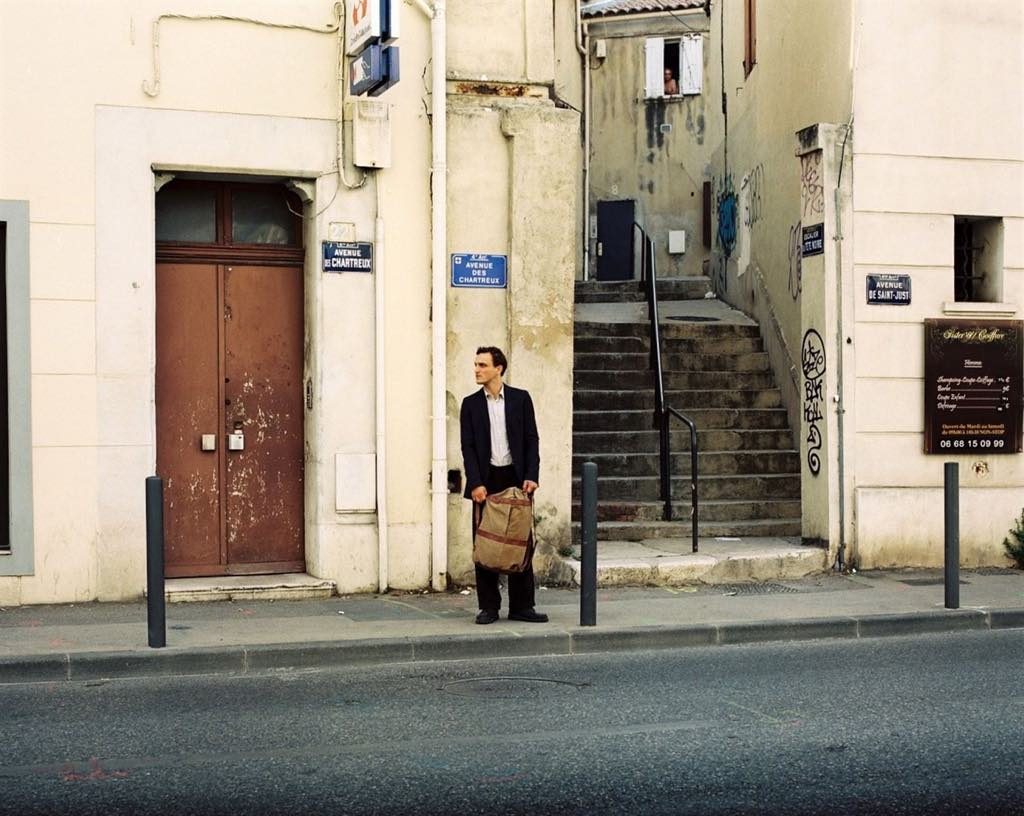
The French-German production Transit, directed by Christian Petzold, is an odd bird of a film. It takes place in present-day France (oddly, no one has a cellphone, however), where unidentified “Fascist” occupiers are moving through the country arresting foreigners. The only hope for the movie’s protagonists, Germans (ironically) living in France, is to get passage to another country.
The film’s “hero,” Georg (Franz Rogowski) is stuck in Paris with no way out as the Fascists close in. Through a complicated series of events, he ends up in Marseille with the papers of a dead German writer who had succeeded in obtaining passage to Mexico for himself and his wife. It doesn’t occur to Georg at first, but he finally realizes that he can take on the man’s identity and leave for Mexico. First, however, he must get transit papers from the U.S. consulate, where the ship will be stopping.
While waiting in Marseille, he befriends a young North African boy and his deaf mother, who are in a plight similar to his. He is also haunted by constantly running into a beautiful woman in the street who seems to be searching for something or someone. She turns out to be, Marie (Paula Beer, whom we last saw in François Ozon’s Frantz), the estranged wife of the very writer he is impersonating and, not surprisingly, he falls in love with her, but he never reveals to her that he has stolen her husband’s identity. [I am leaving out many other complications for simplicity’s sake.]
So, why do I say is this a strange bird of a film? It’s a genre-bender that is very hard to pin down. It’s certainly political, with the scenes of Fascists hunting down foreigners echoing the German Occupation of France and the attempted escape of Jews and other “undesirables” from the South of France. It also calls to mind today’s treatment of immigrants in France and many other countries around the world.
At the same time, it’s a suspenseful thriller that toward the end starts to veer into a psychological thriller, with some magical realism thrown in for good measure.
Throughout, a superfluous narration that sounds like it is being read from a novel (the film is adapted from the 1944 novel Transit, by the German Jew Anna Seghers, who found refuge in Mexico during the war) gives the film a literary tone that adds nothing and is more annoying than anything else as it narrates what we can clearly see the characters doing onscreen.
Transit is absorbing, mysterious and troubling but not as affecting as it should be and ultimately frustrating, leaving you feeling a bit like you’ve been short-changed.
Favorite
Belle Photo du 104 !
Transit : Superbe film et découverte de Franz Rogowski fascinant. Un excellent livre qui a aussi traité à cette période : La nuit à Lisbonne de E.M. Remarque.